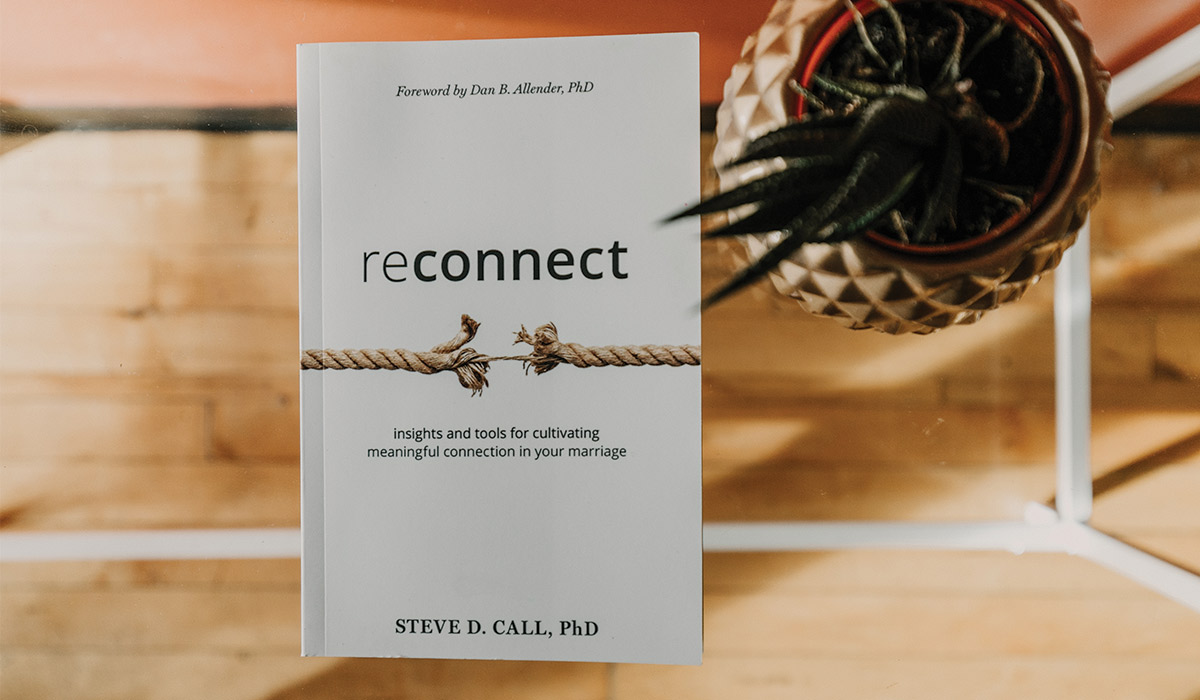Reconnection in Marriage, Part One

This week Dan dives into a new series with his friend and colleague Dr. Steve Call, a therapist and Associate Professor of Counseling Psychology at The Seattle School, who has just published a new book, Reconnect: Insights and Tools for Cultivating Meaningful Connection in Your Marriage. Reconnect offers an insightful, practical overview of findings drawn from Steve’s own experiences in marriage and his years of therapeutic practice and of teaching others to work with couples and families.
Dan: “There are many, many books on marriage—two of which Tremper and I have written. But this book is staggering in both its simplicity, and in its depth and goodness.”
For Steve, this book was years in the making. As he worked with couples and tried to grow in his own marriage, he consistently encountered certain themes that seemed to be unaddressed in other books and conferences about marriage. Most importantly, the category of hurt—which helps frame Steve’s book—was largely unexplored. Underlying so much of the disconnection couples experience is a feeling of being hurt, and Steve argues that until that reality is addressed, we will continue reenacting old patterns of conflict and withdrawal without knowing why.
Steve: “I sensed that there are certain things that are unaddressed and unspoken with regard to what causes difficulty and tension and struggle and distress for couples. […] The hurt between couples is what continues to perpetuate disconnection.”
Dan: “This is so unaddressed in most marriages.”
We have a really difficult time being able to name hurt, put words to hurt, because we are terrified and fearful of how our spouse will respond.
Steve’s book is framed by three core convictions: we’re meant to connect, all too often we’re disconnected, and there are ways we are intended by God to reconnect. Before that movement toward reconnection, first it’s essential to explore the root issues that cause disconnection in the first place. And more often than not, says Steve, those issues are related to experiences of hurt that—whether through cultural messages or family of origin dynamics—we feel too much fear and shame to name. So instead, we turn away from the other in isolation and withdrawal, or we turn toward the other in frustration and contempt.
Steve: “For many of us, we’ve learned really deeply embedded messages of how we respond to hurt. […] We grow up in families where emotional need and emotional experiences maybe were dismissed or ignored or not responded to, or simply just misattuned, where the caregiver, for whatever reason, wasn’t able to respond in a way that was kind or understanding or empathic. We internalize those experiences and bring them into our marriage, and they intersect with one another.”
Dan: “So much of our own trauma, and our own lack of attunement in our families, ends up playing out in relationship with our spouse.”
When hurt goes unaddressed, it leads to shame, with that devastating internal script of “What’s wrong with me?” And when the voice of shame is directing how we relate, we avoid bringing up anything that might lead to discomfort or conflict—including naming our experience of hurt. This fear of conflict, Steve suggests, serves to reinforce the cycles of shame and unaddressed hurt.
Dan: “Conflict, for most people, seems to create that shame spiral and contempt. But you’re actually saying, no, this has the potential to open up more. What’s that opening to?”
Steve: “When we don’t know conflict, we don’t know intimacy. When we do know conflict, we do know intimacy. And part of how we define intimacy is simply just to make known. So when we have conflict, we’re attempting to make something known about ourselves—with the hope that it cultivates and creates understanding.”
Next week, as Dan and Steve continue this conversation, we’ll explore more of the practical tools to help rebuild connection where it has been lost. In the meantime, you can find Steve’s book on Amazon.
